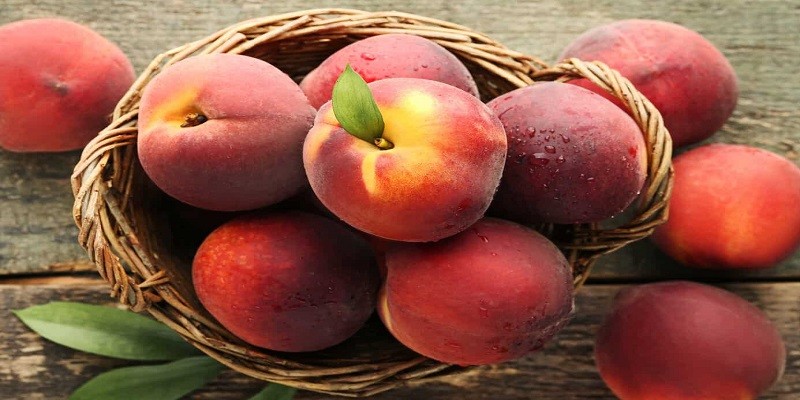Last Updated on May 23, 2024
Yes, pregnant women can eat nectarines in moderation as part of a balanced diet. Nectarines are a good source of essential nutrients and can be safely consumed during pregnancy when properly washed and handled.
Pregnancy is a crucial time when a woman’s dietary choices significantly impact her health and the development of the growing fetus. Nectarines, a delicious and juicy fruit, are often a subject of concern for expectant mothers. This article aims to provide comprehensive information on whether pregnant women can consume nectarines, their nutritional value, potential risks, and safe ways to incorporate them into the diet.
What is Nectarines?
Nectarines are a smooth-skinned variety of peaches that belong to the Prunus genus. They are known for their vibrant colors, ranging from yellow to red, and their sweet, aromatic flavor. Nectarines are a popular summer fruit and are widely available during the warmer months.
Nutritional Value of Nectarines:
| Nutritional Value | Details |
|---|---|
| Calories | 60 kcal per 100g |
| Protein | 1.1g per 100g |
| Carbohydrates | 15.2g per 100g |
| Fiber | 2.4g per 100g |
| Vitamin C | 7.7mg per 100g |
| Potassium | 285mg per 100g |
Risks of Eating Nectarines During Pregnancy:
| Risks | Details |
|---|---|
| Foodborne Illnesses | Unwashed nectarines may harbor harmful bacteria like Listeria or Salmonella, which can cause foodborne illnesses during pregnancy. |
| Allergic Reactions | Some women may experience allergic reactions to nectarines, leading to symptoms like rash, itching, or difficulty breathing. |
| Gestational Diabetes | Nectarines are relatively high in natural sugars, which may need to be monitored for women with gestational diabetes. |
Safe Ways to Eating Nectarines During Pregnancy:
Pregnant women can safely enjoy nectarines by following a few precautions. Thoroughly wash the fruit under running water to remove any potential contaminants. Peel the skin if desired, as it may reduce the risk of allergic reactions. Consume nectarines in moderation as part of a balanced diet, and consult with a healthcare provider if any concerns arise.
Alternatives to Nectarines During Pregnancy:
| Alternatives | Precautions |
|---|---|
| Apples | Wash thoroughly and peel if desired. |
| Oranges | Avoid excessive consumption due to high acidity. |
| Berries | Wash carefully to remove any dirt or pesticides. |
| Melons | Choose ripe melons and refrigerate after cutting. |
Experts Tips
- “Nectarines are a great source of vitamin C, which is essential for a healthy pregnancy. However, it’s important to wash them thoroughly to remove any potential contaminants.”
- “If you have gestational diabetes, it’s best to limit your intake of nectarines and other high-sugar fruits. Consult with your healthcare provider for personalized dietary recommendations.”
- “Pregnant women with a history of allergies should be cautious when introducing new fruits like nectarines into their diet. Start with a small portion and monitor for any adverse reactions.”
FAQs:
Can eating nectarines during pregnancy cause miscarriage?
No, there is no scientific evidence to suggest that consuming nectarines in moderation can cause miscarriage. However, it’s essential to practice proper food safety and hygiene when handling and consuming nectarines.
Are nectarines safe for pregnant women with gestational diabetes?
Pregnant women with gestational diabetes should limit their intake of nectarines and other high-sugar fruits. It’s recommended to consult with a healthcare provider or a registered dietitian for personalized dietary guidance.
Can nectarines cause allergic reactions during pregnancy?
Yes, some pregnant women may experience allergic reactions to nectarines, such as rash, itching, or difficulty breathing. If you have a known allergy or experience any adverse reactions, it’s best to avoid consuming nectarines during pregnancy.
How many nectarines can a pregnant woman eat per day?
There is no specific recommended daily intake for nectarines during pregnancy. However, it’s generally advised to consume them in moderation as part of a balanced diet and to monitor your overall sugar and calorie intake.
Can nectarines help with morning sickness during pregnancy?
Some pregnant women find that consuming nectarines can help alleviate morning sickness due to their refreshing and hydrating properties. However, individual experiences may vary, and it’s essential to consult with a healthcare provider if morning sickness persists or becomes severe.
Conclusion
Nectarines can be a nutritious and delicious addition to a pregnant woman’s diet when consumed in moderation and with proper precautions. While they offer essential nutrients like vitamin C, fiber, and potassium, it’s crucial to wash them thoroughly, monitor portion sizes, and consult with a healthcare provider, especially for those with gestational diabetes or allergies. By following safe practices, pregnant women can enjoy the sweet and juicy goodness of nectarines while supporting a healthy pregnancy.







